Correction: MacEwan does not directly work with the Rick Hansen Foundation. However, Megan Schellenberg has referred to the Rick Hansen Foundation as a company that helps post-secondary schools with these barrier-free / inclusive recommendations.
The Facilities team is one of MacEwan University’s largest service departments. This November, Stephen Luyendyk, the director of operations and maintenance said in an email, “within Facilities, we have 104 staff, plus 3 vacancies that we are trying to fill.” I spoke with eight people employed within the facilities department to scratch the surface on the daily work involved to keep MacEwan’s campus running smoothly.
Dan McLean
By the time MacEwan became a university in 2009, Dan McLean had already been working in materials handling for several years. In total, he has worked in shipping and receiving for 17 years. At first, McLean trekked through the hallways with deliveries. Six years ago, he became the shipper and receiver. Now, he remains in his office, in the basement of Building Six, to be there for couriers that arrive at any time. Everything shipped to MacEwan goes through McLean, except food which has a separate department.
A normal receiving day for McLean might include paper supplies, beer for the Towers bar, and live goldfish.
He has seen a whopping array of shipments such as cleaning supplies, pregnant dogfish for labs, and a $750,000 magnetron. McLean says he once received, “small, small samples of cocaine for the biology labs.” A normal receiving day for McLean might include paper supplies, beer for the Towers bar, and live goldfish.
“I enjoy the work and enjoy the challenge,” says McLean. Often, an item is only labelled “ship to MacEwan University.” So, it’s up to McLean to find out who sent it, where it’s going, and whether it’s on a purchase order. “. . . So then, you start doing some detective work and calling people,” he adds.
When McLean gets off work, he likes to attend sporting events or watch them on TV. “I’m a sports junkie,” he says. “If it’s a quiet night, I’ll watch anything, right down to lawn bowling.” He’s played many sports himself, like basketball and competitive fastball. McLean also spends much of his down time with his wife and family. At the time of writing, they planned to spend four weeks in the Philippines during Christmas.
McLean plans to retire within the next two years. Are you interested in meeting McLean and seeing shipping and receiving? During lunch hours, McLean welcomes curious students and faculty alike to “…come down and take a look!”
Hana Matova
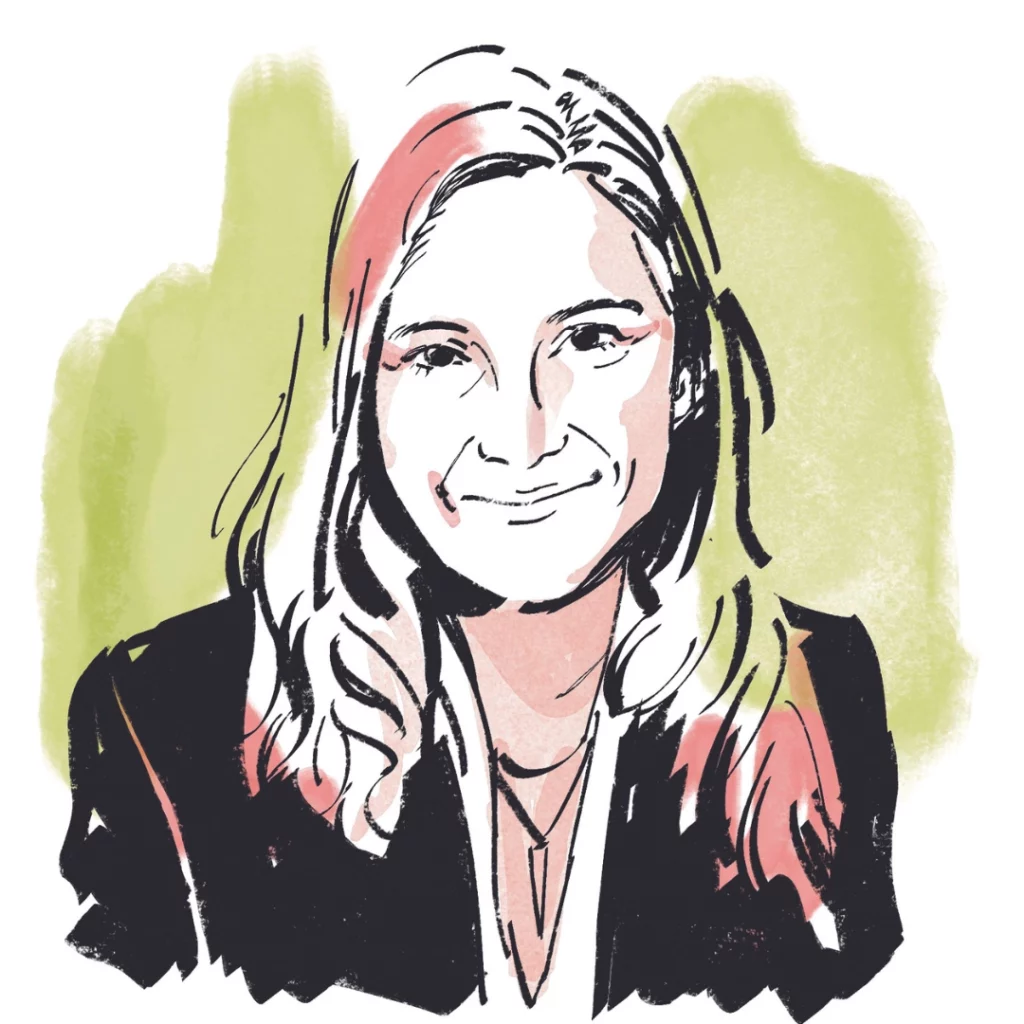
“I’ve been working on projects from the beginning,” says Hana Matova. She started at MacEwan in 2009 as a project analyst for facilities. Now, Matova is the project manager for MacEwan’s New School of Business. She began managing the project close to five years ago, and says it has been, “. . .really, really exciting. . .” Matova works in the USC, or University Service Centre, (located on top of the parkade) where) she can see the patch of land on 109 Street and 105 Avenue that’s destined to be the home of the building. Thanks in large part to Matova’s work, the patch of land that was once a railyard will soon be a construction site. By January of 2027, it will be a seven-storey tower open to MacEwan’s students.
As a project manager, Matova plans and executes project activities. The largest part of her job is coordinating every group involved in the project, both on and off campus. Think of groups like consultants, contractors, internal stakeholders, design architects, and the school of business. Matova also works closely with facilities since the building needs to work long term for both the end users and for operations and maintenance.
“I’ve been working on projects from the beginning,”
Hana Matova, project manager for MacEwan’s New School of Business.
Outside of work, travelling is important for Matova and her family. “I moved here from overseas. . . I really like to go back and travel and visit my family, and also see new places. . . I also try to make sure my kids know our culture and language.”
Matova is one of many working behind the scenes in the Projects group of facilities. Once a project is done, finally seeing how students use the space “is the best thing for us,” she says. While you wait for the school of business’ construction, you can explore the design of Matova’s project with the MacEwan Means Business School of Business Flythrough on Youtube.
Jeff Mawson
Jeff Mawson is the supervisor of grounds and general services, or operations as he likes to call it.
“It’s all frontline maintenance,” says Mawson. Though he’s been at MacEwan for about 30 years, Mawson says he took on this role close to five years ago, or just before COVID. He started working at MacEwan when the City Centre Campus was still under construction.
“My main responsibility is basically looking after our customers,” says Mawson, with customers meaning students and faculty. “My scope is pretty big . . . anything frontline that you see in this university we fix,” he says. He says that may include, “anything from broken blinds to bathroom stall parts.” “If you have bugs in your office, I call a pest control company.”
Over the years, he has cultivated a long list of working relationships with people like locksmiths, painters, and plumbers. “I deal with all of the contractors,” says Mawson.
Other than working with contractors, he distributes the work out to his team. At the time of this interview, his 13-person team was made up of seven maintenance workers and six grounds workers. Come snowfall, Mawson coordinates the grounds team to clear the sidewalks. The City Centre Campus alone spans seven blocks. They also clear the sidewalks for the buildings behind campus like the Residence building and the MacEwan University Health Centre. In terms of his team’s work ethic, Mawson is quick to say words like “fantastic,” “A plus,” and “excellent.”
When he can, Mawson engages in outdoor hobbies. In the summertime, Mawson can be found golfing and camping. Come winter, Mawson breaks out the skis. This winter, Mawson has a couple of trips planned for skiing in the mountains.
Le Nguyen
Le Nguyen has worked at keeping MacEwan a clean campus for more than a decade. “I really value my job,” says Nguyen. After having worked in facilities as a custodian for 13 years they can say, “It is not the hardest position, but you develop in it.”
Nguyen previously worked in the USC for a long time, but recognized the need to change their environment. They say, “. . . that’s how you find out what you like.”
At the time of this interview, Nguyen is enjoying the change of scenery around Building Five. Their main responsibility is maintaining the washrooms. If you’ve used toilet paper on campus, it might be Nguyen to thank for stocking it.
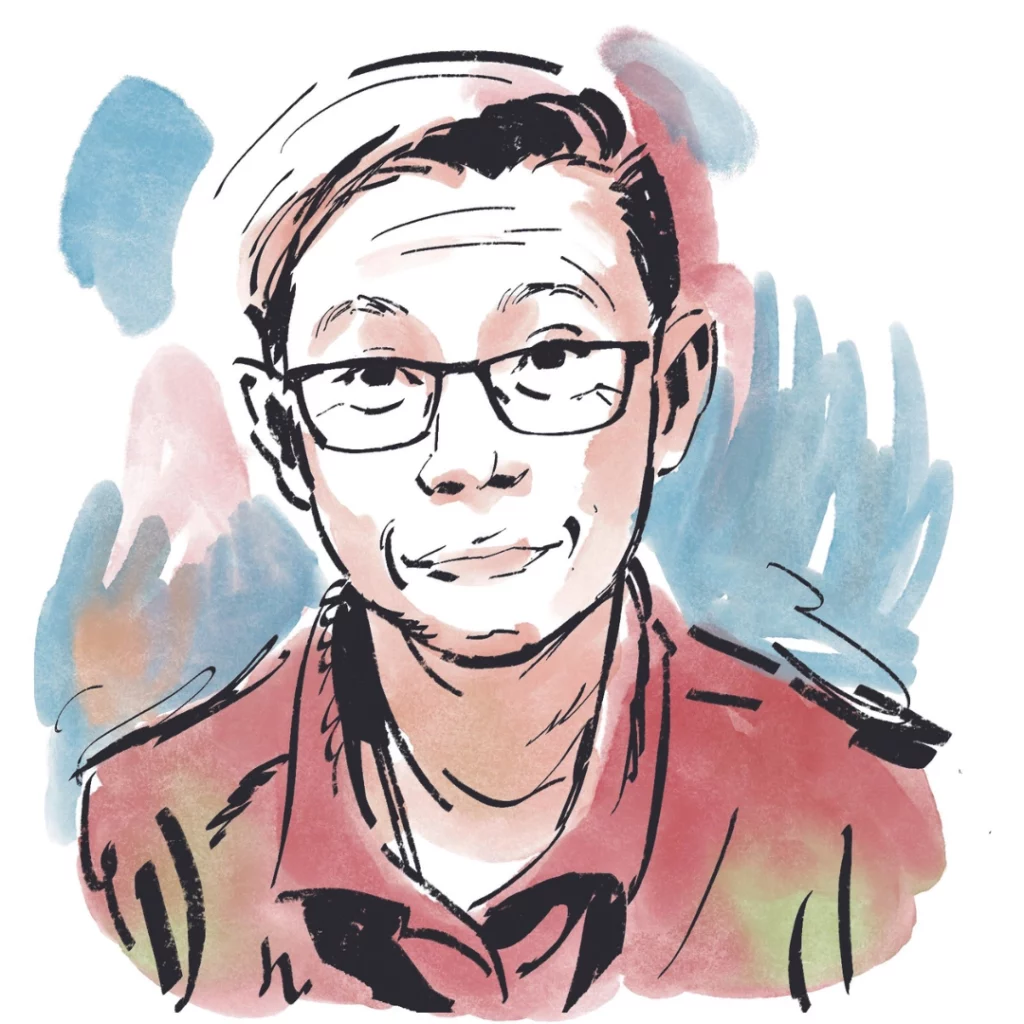
“Everybody uses the washroom. You don’t want to go into a dirty washroom . . . Or, a dirty library,” says Nguyen. Apart from a “thank you,” they appreciate when a student notices an area that needs attention and lets them know. “It’s a big help for me.”
When off campus, Nguyen is often studying social media and marketing on their laptop. Through the Peerless Training Institute, Nguyen achieved a bachelor’s degree in business administration, and, at time of writing, expects to graduate from their marketing studies in December. Prior to studying in the Peerless Training Institute, Nguyen earned a bachelor’s degree through East West College.
Every day, Nguyen is confronted by their cat before leaving for work. Ella is a light gray, one-year-old cat, and a “carbon copy” of Nguyen’s late cat Harry. “Ella just looks at me. I just . . . tell her I have to go to work. She gives me that face..” Their home holds two other pets: Simba, her roomate’s cat who stands on counters and stares at Nguyen telling him to get off, and a senior Chihuahua.
Myron Halliday
(Disclosure: The author previously knew Halliday, and took discretion to stay true to unbiased journalistic integrity.)
Myron Halliday has been employed at MacEwan for 16 months in the electrical maintenance department, but has history with the campus. Prior contract work had Halliday visiting the campus for 16 years. He became an electrician when he was just 16 years old.
Halliday’s hands and MacEwan’s lights have an extensive relationship. He’s worked on many of them, from the complex lights in the Triffo Theatre to the fluorescent lights in Buildings Five to Eight. Halliday’s main responsibilities include daily upkeep, like making sure lights, fans, heat, and plugs are all working properly. He also watches over larger systems like the data systems, sprinklers, and fire alarms. According to MacEwan’s website, they hold themselves to standards set out by ISO 50001 energy management systems, which means that the school essentially tries to adhere to best practices in the realm of energy efficiency and resource conservation. One way they do so is by “conducting a large-scale lighting retrofit,” which directly involves Halliday.
Have you ever wondered who changes the red lights on the tip top of MacEwan’s 12 iconic towers? When the obstruction lights for aircraft were changed to LEDs, Halliday was one of the electricians to strap into a harness and climb. “. . . It was a couple of really long days,” says Halliday. He worked without fear of the height, but was wary of dropping any tools despite them being tied. “Actually, at that point, you don’t even realize how high you are,” he says.
Even on a smaller scale, like when he’s working on a ladder, dropping a tool is dangerous. His team tries to barricade areas and keep them fairly safe. Still, Halliday says, “I think students and faculty could be a little more aware of the danger that they’re getting themselves into when they come around a ladder.”
Before Halliday had even considered touching wires for a living, he held hockey sticks, footballs, and skis. “I’ve always been a sports person,” he says.
Megan Schellenberg
Coming from an architecture background, Megan Schellenberg has worked for MacEwan’s Facilities department for four and a half years as the space management facilities planner. Over the pandemic, Schellenberg was on the MacEwan Relaunch Services Planning and Coordination Group, which is essentially a COVID recovery team. After some time with a ghost town campus, she says, “. . . all of a sudden, I have to make it pretty much feasible for people to come back.” It was a time of shifting gears to match changing guidelines. As an example, she planned locations of COVID safety signage and the direction of foot traffic.

“I work directly with stakeholders throughout Grant MacEwan,” says Schellenberg. She meets with them to discuss space pressures and demands. Shellenberg works with people like Hana Matova to offer suggestions on space layout, floor plans and design, and furniture. When a faculty hires new staff, Schellenberg has to go through the space’s design, functionality, and adherence to building safety codes.
Shellenberg is passionate about working on removing barriers to inclusivity and aspires to go above and beyond what is necessary for barrier-free and building code standards. She and her coworkers completed the MacEwan University Barrier-Free and Inclusion Study. They met with groups at MacEwan to discuss how to create more welcoming spaces. Schellenberg also works with the Rick Hansen Foundation which gives mobility-based recommendations, like the improper slope of the cafeteria ramp in Building Six which has since been corrected.
After clocking out for the day, Schellenberg is on mom duty, “running around going to swimming lessons, basketball games, all sorts of things.” She loves socializing with friends and family. She even hosted virtual game parties over COVID.
As much as she tries to get every group’s input, it’s impossible to hear from everyone. Schellenberg says that she’d love to hear student feedback.
Scott Reed
“I started at the bottom and worked my way up,” says Reed.
In the early 90s, F Scott Reed joined an entry-level position at Grant MacEwan Community College as a custodian. Reed says that he was given training and opportunities throughout his time with MacEwan. By February of 2024, Reed will have worked at MacEwan for 32 years. He worked in operations for 10 years in many roles, then switched to maintenance which he has stayed in for the past 22 years. His first title was called support technician, but he is now a maintenance planner.
Reed compares the role of maintenance planner in his department to that of a quarterback on a football team. Work orders arrive through the FIMS system. When a request is designated for maintenance, it is funnelled to Reed. From there, he delegates the work order by considering the scope of work involved. With 17 staff members for maintenance, Reed calls the team “lean and mean.”
Have you lugged your body and books through lurid heat and mosquitos for your spring or summer class, only to finally be refreshed by the blissful blast of MacEwan’s AC? Reed is also responsible for preventative maintenance which includes maintaining the air handling units. Reed says that part of his role is to, “make sure we have cooling in the building.”
“I bettered myself by taking a lot of courses along the way,” says Reed, listing courses in power engineering, maintenance, and supervising. At home, Reed’s hobby is MMOs (massively multiplayer online) games. He mainly plays Everquest and shares this hobby with his son, who has become more of a World of Warcraft player.
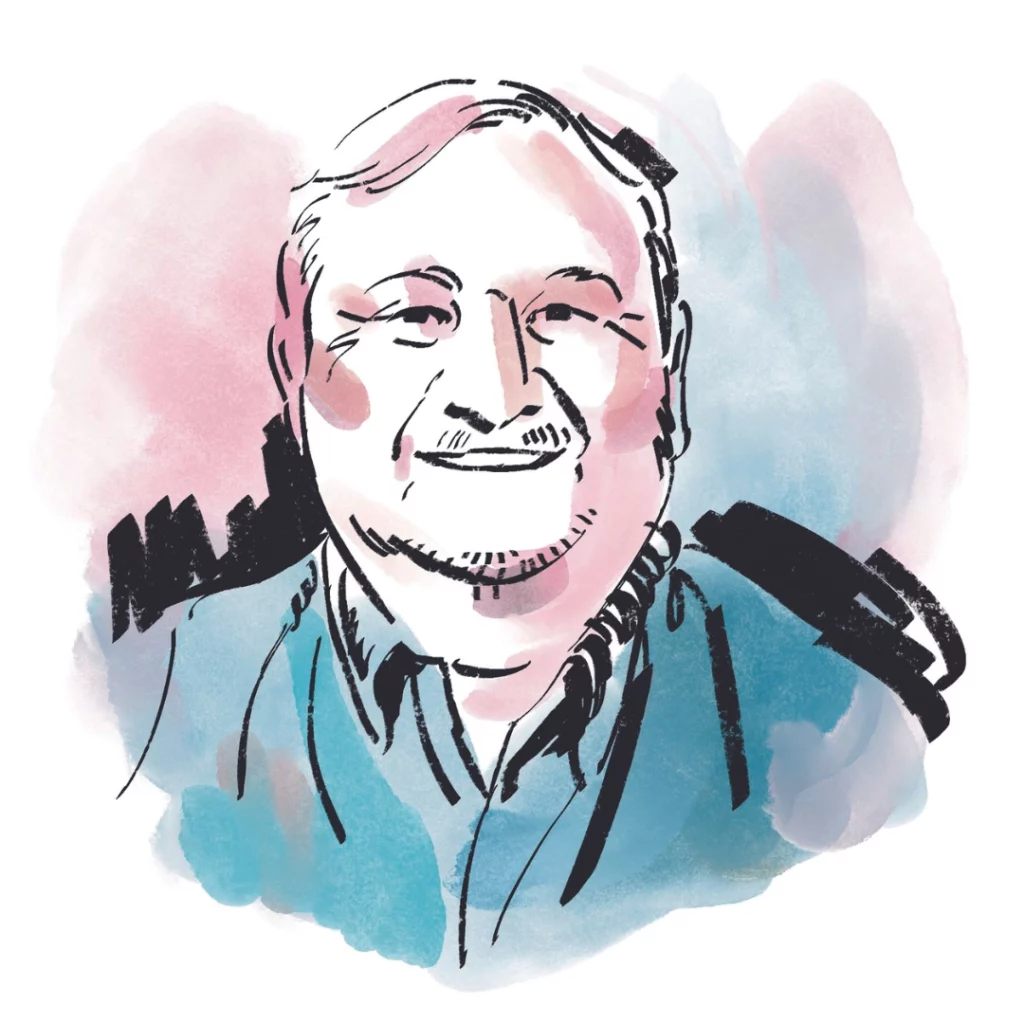
Reed says that the best thing about working at MacEwan for over 32 years has been the people.
Stephen Fountaine
Stephen Fountaine was born and raised on a farm in England, in the very same town as the home of Red Bull Racing and the production of Aston Martin cars. For a good part of his life, Fountaine dashed across continents thanks to his careers in the travel industry. Now, Fountaine dashes across MacEwan’s campus. He began working at MacEwan in 2016 as an FMW, or a facilities maintenance worker.
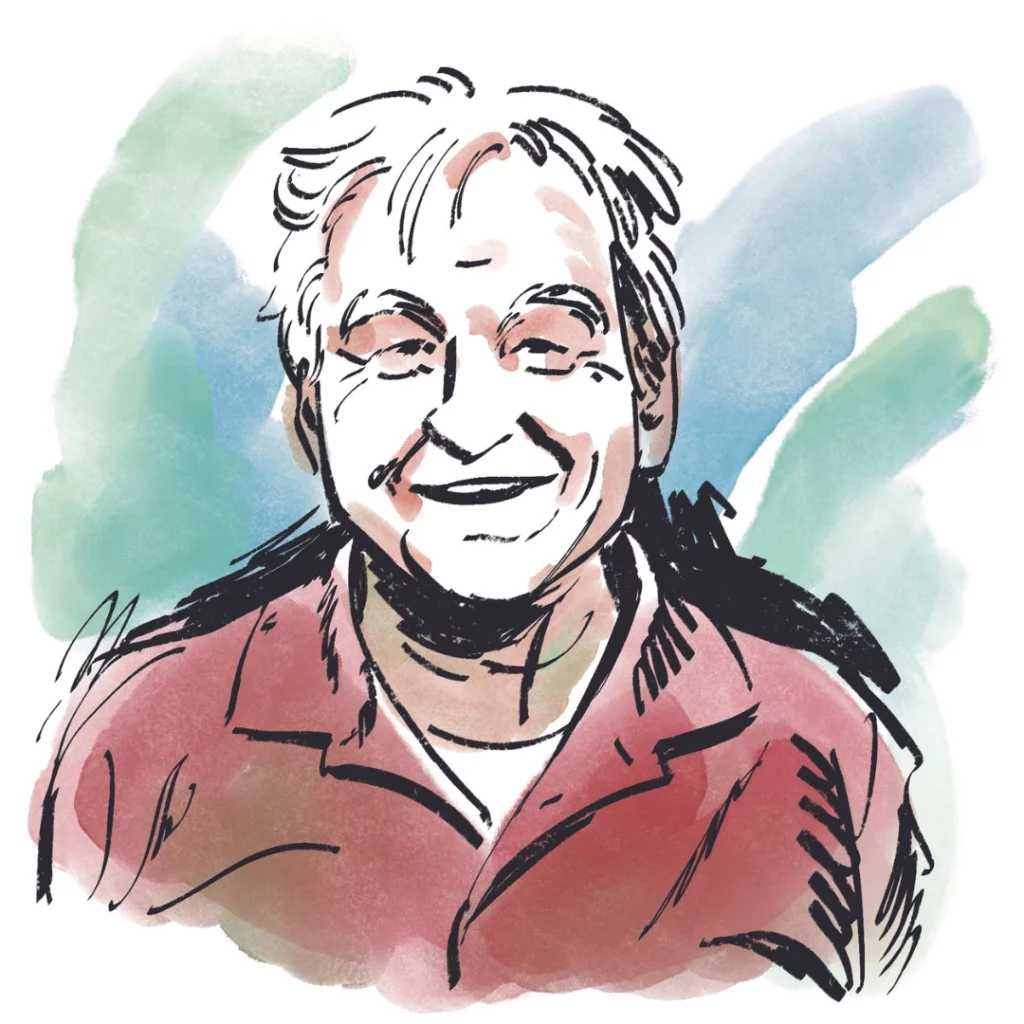
“I’m very proud to work here,” says Fountaine. He bustles between buildings with a cart of tools, fixing whatever he can. First, a work order is requested and sent down to be allocated to Fountaine or his co-workers. Next, he goes on the prowl for the issue, like a burnt bulb. “The more detail we have to go on, the easier it is,” he says. Once the problem is repaired, the work order is closed. Students can request maintenance by calling the Facilities number or sending them an email. The contact info is available on MacEwan’s website. Alternatively, students can simply notify a staff member.
“I quite honestly believe that every one of my colleagues cares when they do a job,” says Fountaine. He is quick to mention the mission statement for Facilities Operations and Maintenance.
With a swish and display of the back of his leather jacket, Fountaine presents his first hobby: Formula One. His second hobby? Scuba diving. To say he is well-traveled would be an understatement. Fountaine says that he’s been to most European countries, Libya, Saudi Arabia, as well as places “all over North America, the Caribbean, Central America.” Despite travelling to places across the globe, Trail, B.C. is certainly an important part of his travels. Fountaine says, “I met a lady . . . who owned an Italian restaurant. She came and sat with me one night, and that was the most expensive plate of pasta I’ve ever had.” That lady is now his wife. They plan to retire in Costa Rica this April.
Graphics by Shelby Mandin

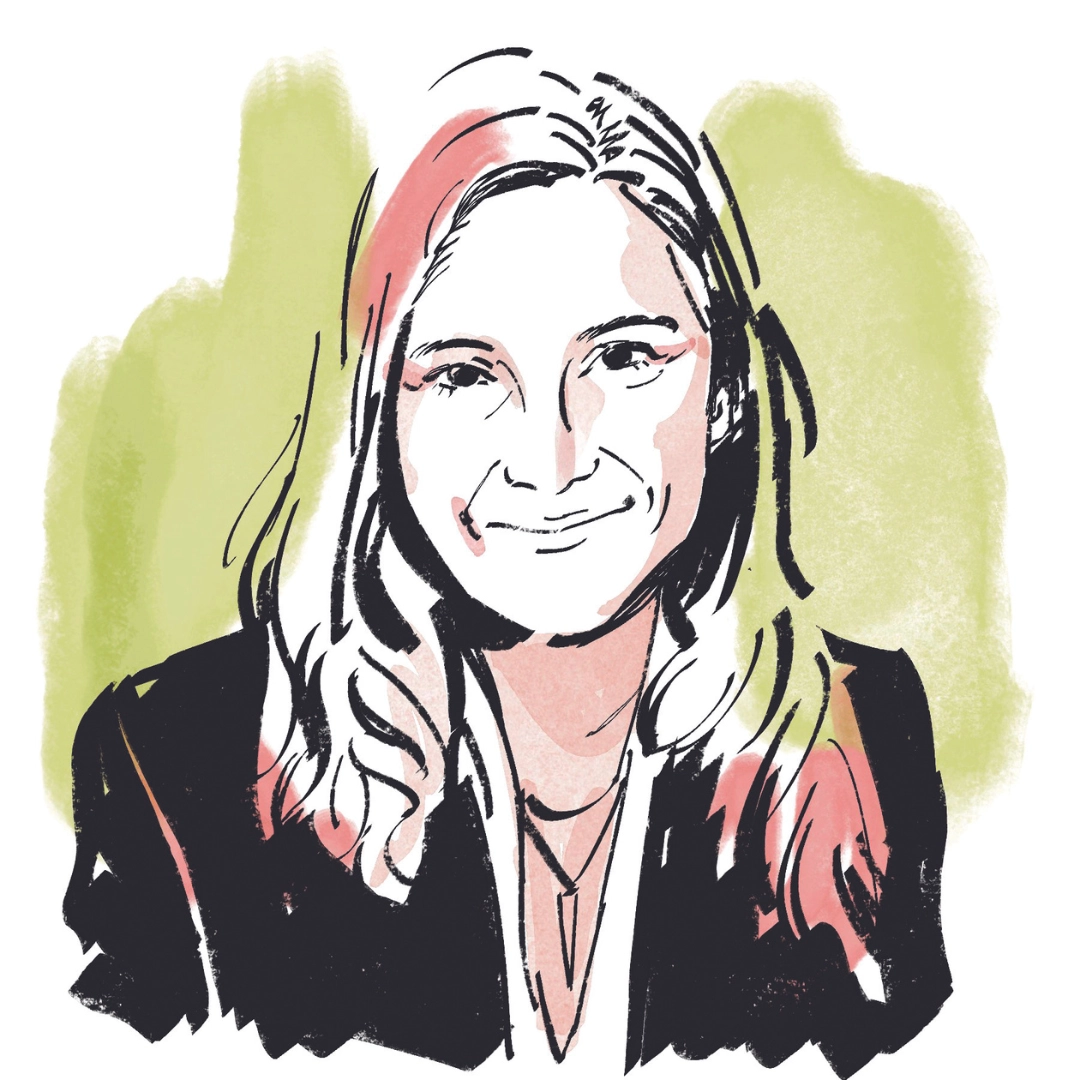



I love this piece! Thanks for bringing light to the people who keep campus running!